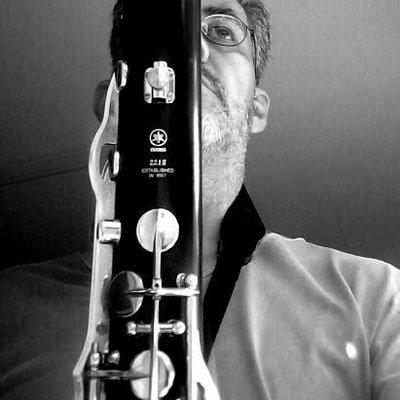Sometimes I dream of towns where cars (+ noisy scooters and moto) would be banned 🍵
Try walking on calm streets when no cars are around, it feels very liberating.
Or maybe don’t if you live in the USA.
Ban them in the busiest parts of cities and just rely on public transit (buses and streetcars), bikes, and walking.
When I recently visited Amsterdam I was wondering why they have so many parked parks in the canal district. Another friend rented a car and we beat them anywhere in the canal district by walking.
They also have amazing bike infrastructure and trams. Seems like a good candidate for this type of idea.
Maybe one day in our collective dreams…
In some places they only allow morning deliveries, then for most of the day cars are banned. This means shops can still easily stock up while keeping the area free of traffic when people are out and about.
Another strategy is not allowing through-traffic by installing modal filters. Which means you’re only gonna drive in there if you actually need to go there. Basically the cul-de-sac idea from suburbia but without the sprawl that pulls everything apart and without restricting bikes and pedestrians to the same convoluted labyrinth.
Modern cities don’t suck. Many pieces of architecture is a new miracle of engeneering, almost every street is a masterpiece of planning and organisation, …
Furthermore studies claim that people in cities are much happier than on the country side. So maybe a bit complaining about car noise is not that mentionable.
Nobody is criticizing architecture of buildings, but there is no way “every street is a masterpiece of planning”. The only reason it could ever be considered as good is because they managed to direct traffic at all with how many cars there are. They wouldn’t have to spend so much money and expert civil engineering of roads if there weren’t so many cars to deal with in the first place. Being so good at managing car traffic is not actually a positive. It’s just a less worse negative.
People in cities aren’t going to be happy because of cars and road traffic management. If this claim is true at all it would be because people like being near people. There are social things to do where people gather. Personally, I am much happier on the outskirts of a city to get farther away from the chaos, but close enough to go there if I want.
Ideally there would be no cars in a city other than emergency vehicles and anyone going to a city with a car has to park outside of it and then take public transport inside of it.
Nobody is criticizing architecture of buildings, but there is no way “every street is a masterpiece of planning”. The only reason it could ever be considered as good is because they managed to direct traffic at all with how many cars there are.
Roads must be heavily engineered, to carry heavy loads. They are true wonders of what engineering can do. And we cannot do without these roads. They are needed for the military, Police, Ambulance, Firefighters, Trucks transporting goods, and public transport in many other forms. Bike lanes are part of them as well.
They wouldn’t have to spend so much money and expert civil engineering of roads if there weren’t so many cars to deal with in the first place. Being so good at managing car traffic is not actually a positive. It’s just a less worse negative.
Car infrastructure is still easier to maintain than rail. This is due to infrastructure costs. Road costs less than rail (rail also need additional infrastructure such as extremely expensive subway stations and tunnels. Quite unexpected to most people, this rail infrastructure is much harder to maintain. Water pumps for subway systems, air systems included, structural inspections, and rail above ground needs repeated checking as well. Especially high speed train rails are sensitive to temperatures. In the summer they can get too hot to maintain high speeds. They need to be replaced much more frequent than asphalt streets,… There are good reasons, why car infrastructure is preferred by city planners. The versatility is unmatched.
People in cities aren’t going to be happy because of cars and road traffic management. If this claim is true at all it would be because people like being near people. There are social things to do where people gather. Personally, I am much happier on the outskirts of a city to get farther away from the chaos, but close enough to go there if I want.
people are happier in cities at least that’s what studies claim. I myself also prefer the countryside.
Ideally there would be no cars in a city other than emergency vehicles and anyone going to a city with a car has to park outside of it and then take public transport inside of it.
No. Individual transport cannot be given up. It is the latest step in mobility development. And the only way is the way forward. Backwards thinking is for the naive idealists.
The future are electric vehicles that can drive autonomously. All cars would be parked on big, strategically well placed, huge parking houses. Whenever someone needs a car, the car drives to the person that requested it and brings the person to its destination. That is the future we are eventually heading towards to. And nothing will stop it. Billions were already invested into this goal, Mercedes and Tesla leading the way in autonomous driving.
Those investments I’ve already paved the way and there is nothing we could even do to stop it.
All necessary vehicles can be accommodated in pedestrianised areas when needed, as they already are in many places around the world.
Car infrastructure comes with many extra external costs, such as increased heathcare costs due to pollution, increased travel due to the extra space needed between everything, etc
Individual transport is great when it respects the world around it. A bike doesn’t need so many resources, nor does it take up so much space or cause harm to those around it.
Autonomous electric vehicles don’t go far enough with fixing the existing problems. Sharing helps but you still don’t need to take all that mass along with you on your commute, and there isn’t space to have everyone else in a city doing the same every morning.
You see, progress comes with cost. But car infrastructure is so popular, because it is relatively cheap. It’s an economic problem, that has proven that the current situation is the most effective we currently have.
And in the end, some people want to drive cars in cities. Even people that live in cities want to do so.
So as the systems continues to work as it does, one has to expect, that the majority thinks the way I do. And that’s what we usually call swarm intelligence.
It’s cheap because it’s subsidised. Car users don’t pay all of the costs. And it’s popular because places are designed for it to be the most convenient option. When you design places that aren’t for driving, people will use other modes.
It’s cheap because it’s subsidised. Car users don’t pay all of the costs.
I already answered someone else about this topic. So I will mostly copy my comment:
“The subsidisation argument is one that occurs quite often. I can only speak about the situation in my country, Germany. Since every citizen is dependant on car infrastructure, due to their dependance on Trucks transporting goods into the supermarkets, Police service, Ambulances,… and especially they are in need for this infrastructure, because it is used to build the houses people live in and it is used to maintain these houses.
So everyone in my country is somewhat paying for car infrastructure, totally independent from their use of it for private transport, because they are indirectly in need of it. This is what is commonly called subsidisation for car infrastructure, because the use of the capital is often not directly declared by the government.
Now car owners, that drive, have to pay an additional automobile tax, because as it is with all cars, they slowly wear out the road and repairs need to be paid. Due to their additional use of the roads, they have to pay additional for damages and repairs. “
And it’s popular because places are designed for it to be the most convenient option. When you design places that aren’t for driving, people will use other modes.
Yes and no. In Germany we have many options, but cars are still an important and often chosen mode of transport. The infrastructure for other kind of transports exist. But they do not manage to compete with the flexibility of a car.
And I will paste another part of a comment to someone else:
“A modern city is welcoming to the new. This also includes scooters, bike sharing, car sharing, EV, and so on. And addressing the point of a stronger economy, I highly doubt that economic strength is dependant on 30 meters of rail, 10 Meters of Asphalt or whatever. “
because it is relatively cheap.
It is not. Car infrastructure is some of the most expensive there is. It’s cheap because it’s heavily subsidized. It’s popular because car manufacturers made it popular, with propaganda and lobbying for making cars the default form of transportation.
If your opinion is the obviously correct one where driving is the only thing accomodated for, why does the actual data show that the model for walkable cities with good transit have happier, healthier, more comfortable people, and are economically stronger than car dependent cities?
because it is relatively cheap.
It is not. Car infrastructure is some of the most expensive there is. It’s cheap because it’s heavily subsidized.
The subsidisation argument is one that occurs quite often. I can only speak about the situation in my country, Germany. Since every citizen is dependant on car infrastructure, due to their dependance on Trucks transporting goods into the supermarkets, Police service, Ambulances,… and especially they are in need for this infrastructure, because it is used to build the houses people live in and it is used to maintain these houses.
So everyone in my country is somewhat paying for car infrastructure, totally independent from their use of it for private transport, because they are indirectly in need of it. This is what is commonly called subsidisation for car infrastructure, because the use of the capital is often not directly declared by the government.
Now car owners, that drive, have to pay an additional automobile tax, because as it is with all cars, they slowly wear out the road and repairs need to be paid. Due to their additional use of the roads, they have to pay additional for damages and repairs.
It’s popular because car manufacturers made it popular, with propaganda and lobbying for making cars the default form of transportation.
Nah, it rly. Railway companies had their chance. And they failed. Railway companies in the past were extremely rich, they had to capital, but Cars by themselves were at one point considered the better, more efficient, way of transport. So we ended up in a situation, where worldwide rail infrastructure is only used for niche solutions. For example on extremely long trips, to replace planes. (Planes are indeed extremely subsidised which our much logic. But maybe I am just uninformed and kissing the point considering planes).
If your opinion is the obviously correct one where driving is the only thing accomodated for, why does the actual data show that the model for walkable cities with good transit have happier, healthier, more comfortable people, and are economically stronger than car dependent cities?
Now I am rly interested in the subject. Maybe you can tell me where you heard that, or maybe you even have a link? Secondly: A city should accommodate all means of transport. A modern city also includes public transport, a few well placed trams, flexible bus lines, cycling infrastructure, and good pathways for pedestrians. But also parking space for cars.
A modern city is welcoming to the new. This also includes scooters, bike sharing, car sharing, EV, and so on.
And addressing the point of a stronger economy, I highly doubt that economic strength is dependant on 30 meters of rail, 10 Meters of Asphalt or whatever.
Economy is dependant on jobs and education.
May I ask why you comment my username and someone else’s?
They are replying to you and the other person is OP.
How about responding to the stats?
There doesn’t need to be as much road in cities if it is reserved for public transport and emergency vehicles only. Rail and subway are not the only form of public transport, but rail and subways being expensive doesn’t mean that it doesn’t make for a better city. Anything to reduce the noise and reclaim more land for public use such as walking and biking is a huge improvement to peoples well being in cities. As many non-american cities have discovered by doing just that.
And as this article explains why people are happier in cities it has nothing to do with cars.
Individual car transport in cities absolutely needs to be given up if there is to be any kind of improvement. Individual cars are the cause of all the congestion, noise, pollution and need for so much road space. You can fit the same amount of people in 1/10th the space using public transport such as in-road rail or busses or anything.
Autonomous vehicles? Don’t make me laugh. This nonsense is never going to work. Sounds to me like you are drinking the Musk koolaid. The only viable use-case for automation of individual vehicles is going to be large semi-trucks on the interstates where you can actually standardized infrastructure and have as little as possible obstacles. Even then I doubt this will happen any time soon.
There doesn’t need to be as much road in cities if it is reserved for public transport and emergency vehicles only. Rail and subway are not the only form of public transport, but rail and subways being expensive doesn’t mean that it doesn’t make for a better city. Anything to reduce the noise and reclaim more land for public use such as walking and biking is a huge improvement to peoples well being in cities. As many non-american cities have discovered by doing just that.
And as this article explains why people are happier in cities it has nothing to do with cars.
But cars are an integral part of modern cities. So people are happier in cities despite of all the cars. This just means that the influence cars have on people is not as big as you claim it to be to people’s well-being. At the same time many people prefer to drive a car than to use public transport. This is simply because public transport is maybe efficient at transporting many people at once on relatively small space, but it cannot rival the efficiency of a car driving from point A to point B without any stops or transfers. It is the more modern way of transport. Despite all the problems that come along. Building future means improving upon something, and not return to the 1920s.
Individual car transport in cities absolutely needs to be given up if there is to be any kind of improvement.
As I said before. No it does not.
Individual cars are the cause of all the congestion, noise, pollution and need for so much road space. You can fit the same amount of people in 1/10th the space using public transport such as in-road rail or busses or anything.
I already elaborated on the question of efficiency.
Autonomous vehicles? Don’t make me laugh. This nonsense is never going to work.
Mercedes is already one step ahead of Tesla now. It is coming. there is no stop to progress. Who would have thought that something like chatGPT would have arrived into our lives so soon. Especially in scientific subjects it makes still a lot of mistakes, I can only speak for chemistry, but seeing it write Letters with rly nice phrasing in a short amount of time is astonishing.
Sounds to me like you are drinking the Musk koolaid.
It is easy to say this, but my investments are in German car manufacturers. So I’d rather like to see Musk fail.
The only viable use-case for automation of individual vehicles is going to be large semi-trucks on the interstates where you can actually standardized infrastructure and have as little as possible obstacles.
It will most definitely come to private transport as well. Why wouldn’t it? Once software is developed, selling it becomes a matter of advertising.
Even then I doubt this will happen any time soon.
Soon? Not sure, but most definitely in the next 20-30 years.






